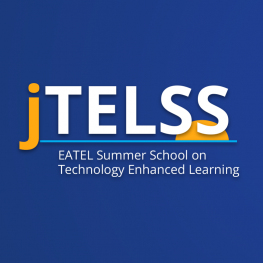Speakers
Christiane Hagedorn
Hasso Plattner Institute, University in Potsdam, GermanySebastian Serth
Hasso Plattner Institute, University of Potsdam, GermanyStart
08/06/2023 - 17:30
End
08/06/2023 - 19:00
Enhance your teaching with story-based methods
Thursday 08/06 17:30-19:00h
Plenary Hall
Abstract
Creating interesting and engaging lectures is important and valuable for every teacher for any in-person and online learning. According to our research results, using a story-based approach helps learners better understand the presented concepts while rating the learning materials’ quality higher than without a story — at least in MOOCs. In this workshop, you will learn about such story-based learning methods and how to use them. During a group activity, you will experiment with designing a short, storified lecture. You can use either traditional story brainstorming following our non-digital guidelines and prepared story elements, or technology-supported story brainstorming by using, e.g., ChatGPT or another tool that creates story snippets for you. After working on your group’s story, you will provide feedback to and receive feedback from the other participants and discuss your experience using this method. After attending this workshop, you can more easily apply a story-based method to your teaching using your workshop experience and our shared guidelines. You will also better understand the essentials of researching such a topic.
Needs Analysis
Creating interesting and engaging lectures is important and valuable for every teacher for in-person and online learning. According to our research results, using a story-based approach helps learners to better understand the presented concepts while they rate the quality of the learning materials higher compared to a non-story approach. Hence, PhD candidates who need to teach students can benefit from this workshop by enhancing their general teaching methods repertoire, learning about different tools to brainstorm stories, and generating ideas for a specific class. We have already offered such a workshop in the past and improved the methodology according to the feedback received. Conducting this workshop at JTELSS will give us insights into whether the improved method can better support teachers in creating good stories for their lectures and how suitable technology-supported brainstorming – e.g., via a tool like ChatGPT – works compared to traditional brainstorming.
Learning Objectives
The participants will learn about storified teaching methods: they will understand what story-based learning is, why it is helpful, and how to use it. During a guided group activity, they will use a story to enrich their own teaching by designing a storified lecture. They will either use traditional or technology-supported brainstorming, i.e., by using ChatGPT or another tool that creates story snippets for them, gaining experience with both creative techniques. They will provide and receive feedback on the group results, and review and discuss their findings using this method. This will help participants apply a story-based method in their own future teaching. If they come from a similar research background, they can also benefit from our knowledge of setting up and conducting story-based and gamified research in online learning, especially in MOOCs.
Pre-activities
No preparation and prerequisites are required. Ideally, participants in advance would share a general class or specific lecture they would like to improve, providing a short explanation of their lecture and challenging topics. If they have no particular topic in mind, knowing which areas they are usually teaching would be beneficial. In addition, it would help to know if they have a preferred method to try out (traditional or technology-supported brainstorming) and how many participants plan to join the workshop. These details help us to better prepare the workshop with specific examples and adapt the group work session according to their use cases and needs.
Session Description
We will start the session with a short presentation about story-based learning and our previously conducted research and results (10’). Afterward, we will introduce the group activity, identify the scenarios to work on, form groups, and clarify the steps to take (10’). The groups will work on the team activity (40’) using our prepared non-digital guideline or a digital tool like ChatGPT. Each group will then discuss their story and how they adapted their lectures with another group (15’) before discussing the method and experience within the entire workshop group (10’). The workshop session will be closed with final remarks on how participants can apply their newly acquired knowledge in their upcoming lectures (5’) and an optional networking possibility for supporting each other in using stories in the future.


